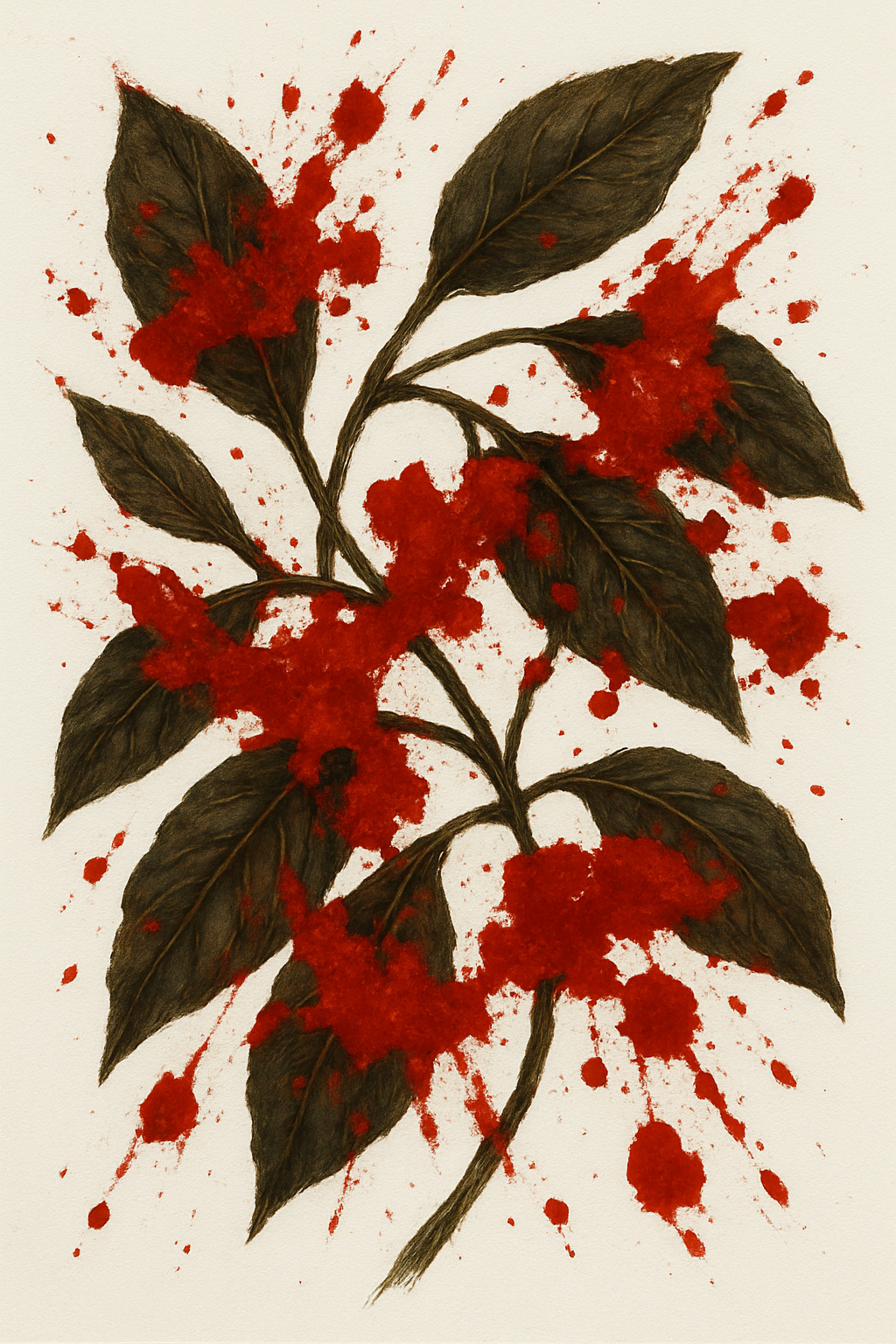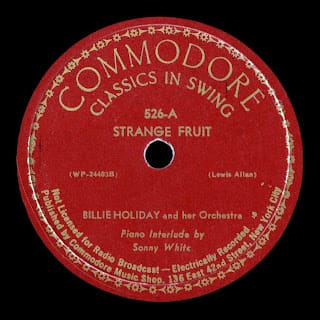Billie Holiday’s “Strange Fruit”: The Song That Still Haunts America

One of the most harrowing protest songs ever recorded in American music—and the one that has become synonymous with the lynching of Black Americans—is Billie Holiday’s “Strange Fruit,” recorded in 1939. The imagery is brutal, drawn from the sight of Black bodies hanging from trees in the Jim Crow South. It forces you to stop, to listen, to confront a truth this country would rather bury.
For Foundational Black Americans (FBA), lynching isn’t some abstract term in a history book. It’s a shadow that trails our families. It’s the tree that still stands in the town square where a body once swung. It’s the family Bible with names that stop too soon. It’s the unmarked grave that the wind whispers over. That’s why I chose this as the first song to talk about on my FBA Music Pride Blog.
I don’t even remember how old I was when I first heard “Strange Fruit,” but I know exactly how it felt. It sounded different. I was probably in college, listening to a Billie Holiday compilation CD I owned. And the track wasn’t even there—because Columbia refused to release it. Only later did I learn that “Strange Fruit” had been pushed onto a tiny independent label, Commodore Records, because Columbia feared backlash from Southern distributors. That alone tells you how dangerous this song was.
Some songs entertain. Some songs are comforting. But some songs rip the mask right off a nation. “Strange Fruit,” Billie Holiday’s chilling 1939 protest anthem, is one of those songs. It’s a sound that makes you stop mid-breath—and forces you to stare straight at America’s ugliest truth.
Billie’s voice trembles with quiet devastation. She doesn’t shout—she haunts. The orchestration is sparse, the tempo slow and deliberate, like a funeral dirge. Every phrase is soaked in personal grief, as if she’s reliving the trauma with each breath. There is no embellishment, no dramatics—just raw, unfiltered sorrow. For many FBAs, Holiday’s voice is the voice of an ancestor whispering from beneath the soil.
The song itself began as a poem. Abel Meeropol, a Jewish schoolteacher from the Bronx, wrote it after seeing a 1930 photograph of two Black men lynched in Marion, Indiana. For him, it was an outrage. For us, FBAs, it is memory. When you look at that photo, the weight of history crashes in.
This song is our memorial. It’s the sound of someone daring to say out loud what others wanted hidden. When Billie Holiday first sang “Strange Fruit” at Café Society—the first racially integrated nightclub in New York—she ripped the mask off America’s ugliest truth: that the bodies of our people were the strange fruit hanging from Southern trees.
When Holiday sang it in 1939, the room stopped breathing. The waiters froze, the lights went dark, and a single spotlight hit her face. And when she finished? Silence. Not applause. Silence.
This wasn’t entertainment. It was a confrontation.
For FBAs, “Strange Fruit” has never been just a song. It’s a document of terror. Those lyrics:
Southern trees bear a strange fruit, Blood on the leaves and blood at the root.
They’re not poetry. They’re a record of the bodies that hung while white America looked away.
Holiday sang them slow, like the words weighed a ton. And by doing that, she stripped away the comfort and made you sit in the truth. Back then, Black singers were supposed to smile, to entertain. Billie chose to testify.
Radio refused to play it. Clubs told her not to sing it. And then the federal government stepped in.
Harry Anslinger, the head of the Federal Bureau of Narcotics, hated her. He sent agents to follow her, harass her, and set her up. Officially, it was about drugs. But everyone knew the real reason: “Strange Fruit” had made her dangerous. A Black woman daring to sing about lynching was too much.
She was arrested, sent to prison, stripped of her cabaret license—effectively banned from performing in the very clubs where she once stunned audiences into silence. Even on her deathbed in 1959, agents came into her hospital room, handcuffed her to the bed, and placed an armed guard outside the door. She died under arrest.
All because she refused to stop telling the truth.
More than 80 years later, “Strange Fruit” hasn’t aged. It can’t. The fruit keeps growing: Emmett Till. Medgar Evers. Trayvon Martin. Sandra Bland. George Floyd. Different ropes. Same root.
That’s why the song keeps coming back. It’s been covered, sampled, and reimagined. One of the boldest reuses came from Kanye West.
One of the most famous covers comes from Nina Simone. Simone’s version arrives more than two decades later. Her delivery is icier, more forceful, almost clinical—but no less powerful. She lets each word drop like a hammer. The piano stabs behind her voice echo the violence of the lyrics, and unlike Billie, Simone leans into a deeper rage simmering beneath the surface.
For Simone, the song isn’t just mourning—it’s accusation. She’s not just remembering lynching; she’s daring you to deny it happened. By the 1960s, America could no longer pretend it hadn’t seen the tree, the rope, the body. Nina makes sure of that. Simone turned “Strange Fruit” from lament to weapon. If Billie mourned the death, Nina pointed the finger at the murderer.
On his 2013 album Yeezus, West sampled Nina Simone’s 1965 version of “Strange Fruit” for his song Blood on the Leaves. It opens with Simone’s haunting voice—and then explodes into chaos.
At first, it seems like he veers away from the song’s meaning, rapping about fame, betrayal, and heartbreak. But that sample? It hangs over everything. It ties the pain of now to the terror of then. It says: these things don’t happen in a vacuum. The past isn't the past.
For some, this use was controversial. For others, it showed just how much “Strange Fruit” still matters. Even in hip-hop’s loudest moments, Holiday’s ghost still walks.
From the spirituals to blues, from Billie’s haunting ballad to Public Enemy and Kendrick Lamar—our music has always been testimony.
“Strange Fruit” is still here to remind us. To insist we look. To force America to hear what it tries to forget.
Billie Holiday once said, “I’ve lived songs like that.” And that’s exactly why it still hits like a hammer.
The next time you hear that opening line—Southern trees bear a strange fruit—don’t just listen. Stop. Feel the weight of it because that song isn’t just about the past. It’s a mirror. And it’s still showing us exactly who we are.

